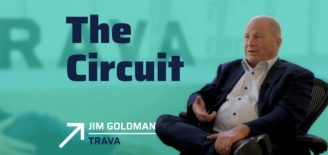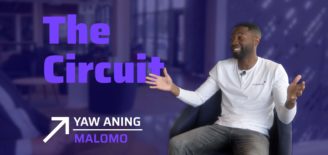Editor’s Note: As executive vice president of sales at PERQ, Jenny Vance has helped to guide three different cohorts of TechPoint Sales Bootcampers through rigorous hands-on, real-world sales training experiences. In an effort to further amplify her insights into effective sales strategies and approaches, we’re happy to present this thought leadership piece authored by Jenny and focused on topic of interest for everyone who’s ever heard “no.”
Turning objections around is arguably one of the most challenging aspects of a sales rep’s job. In fact, whether or not someone is successful at turning around objections can be a good determining factor of whether or not they’re fit for the job in the first place.
Handling strong objections is one of the most important things that sales reps need to do to ensure that they’re capturing the attention of as many customers as possible. Although it’s pretty clear that customers don’t want to be bothered, pushing hard can help because you never know who will be your next paying customer.
Although there will always be times where you fail to convert a prospect into a paying customer, you’ll never know who will ultimately become one until you lean-in and see how you can solve their problems and provide what they need.
Possessing the ability to turn a complete naysayer into a paying customer is difficult, but not completely impossible. With a little know-how and sales technique, objection handling can actually become a heck of a lot easier. The following are some tips that I give to my sales reps on how to handle strong objections.
Always wrap an objection response with an appointment request.
It might seem counter-productive to do this, but it really isn’t. When a sales rep attempts to schedule an appointment with a prospect, it’s an open invitation to the consumer to learn more.
If a consumer says “no,” the sales rep can and should ask if they’d like to set an appointment so that they can chat and ask questions on a call, or even in-person. It’s more an invitation as opposed to a pushy request — and that’s why this is an often successful tactic.
Leverage customer examples.
Sales reps love finding solutions for customers. However, new customers can shut down when being told what to do because there isn’t a foundation of trust. When reps use “I think you should” or “I think we can” language, it isn’t founded in experience. Real experiences are what give confidence that the solutions we offer are the best recommendations. Why? Because they are fact-based. They are built on a foundation of real experience.
Customers want to know that they are not the first to walk down the road you are recommending. Successful reps not only share why customers have bought, but they also share how they bought. They share the steps that customer took that helped them in their evaluation to come to a decision. They share how the customer worked through next steps. Finally, they share how all those things resulted in a positive outcome for the customer.
Don’t take it personally. They are saying no to the product, not to you.
I can’t stress this enough. If a consumer tells you “no,” and they’ve told you “no” to the umpteenth degree, do NOT take it personally. First of all, any response offers insight and intelligence that provides sales reps with a choice. The worst possible outcome is no response because sales reps then don’t know what went wrong or why they lost the sale.
Do yourself a favor and “Seek the no!” Yes, it’s scary to do that, but getting a “no” allows the rep to adjust and decide if they can solve the problem. Or better yet, they can decide if it’s worth more time investment from all parties to solve it. Very rarely will a customer share that their reason for saying “no” is because of the sales rep. Even if you offer all the supposedly perfect solutions or all the perfect options to a consumer, it might not be right for them. And that’s okay!
Stay on the high road.
Not every customer will be friendly and some customers might even be very unprofessional. That’s what makes picking up the phone or approaching a new customer scary. We don’t know the outcome or what it will entail. If everyone were always friendly, then sales wouldn’t be such a difficult role to hire and retain.
While these scenarios make up a small percentage of customer interactions, they can still feel hurtful and unnecessary. It’s hard to stay on the high road when someone is yelling, cursing, accusing or aggressive … and yet, it’s oh so important. Many times, those customers come back around for a sale. By staying on the high road, the door is open to revel in the satisfaction of that returning customer.
As I mentioned before, not every one of your “lean-ins” will work. It just is what it is. However, there will be moments in time when customers think they know what they want, but they really don’t. These are the best times to really strut your stuff and differentiate yourself from both your colleagues as well as other sales reps. Push hard, but be respectful. Offer high level solutions, but don’t diagnose. And most important of all, don’t take rejection personally.
About the Author
 Jenny Vance, EVP of Sales at PERQ, has helped over 350 companies from across the world develop sales generation strategies, including Fortune 50 clients, companies with series A/B/C funding, and early stage entrepreneurs at seed stage. Jenny has a strong ability to identify sales talent, cultivate leaders, scale proven sales performance and develop aggressive ramp towards value for new employees.
Jenny Vance, EVP of Sales at PERQ, has helped over 350 companies from across the world develop sales generation strategies, including Fortune 50 clients, companies with series A/B/C funding, and early stage entrepreneurs at seed stage. Jenny has a strong ability to identify sales talent, cultivate leaders, scale proven sales performance and develop aggressive ramp towards value for new employees.





































